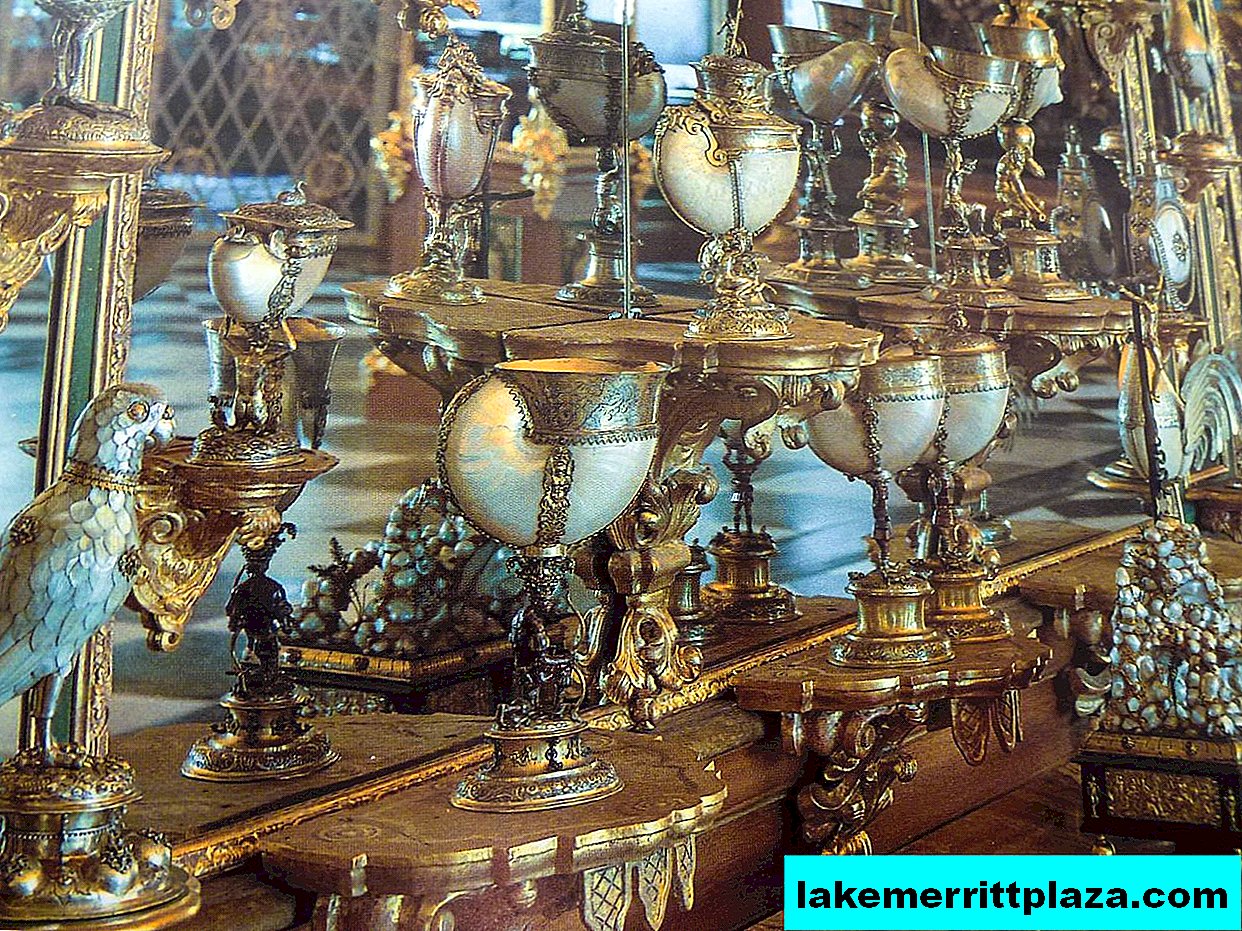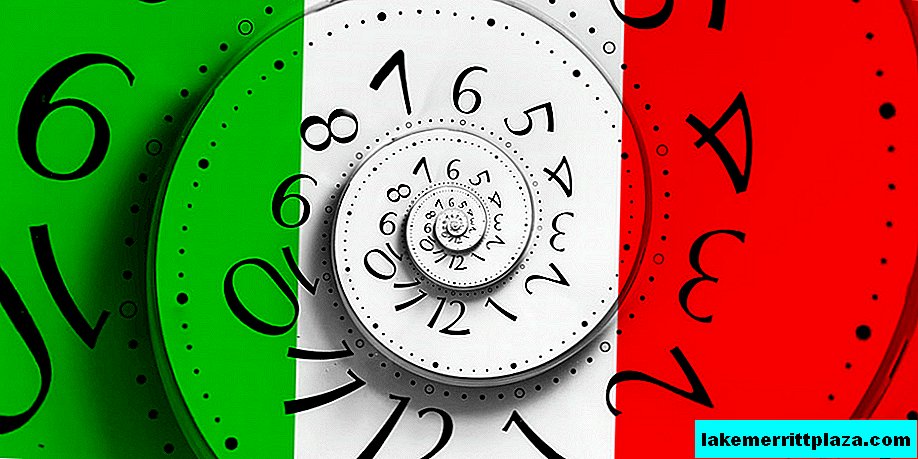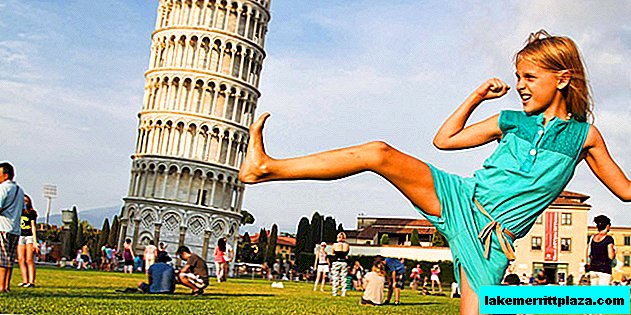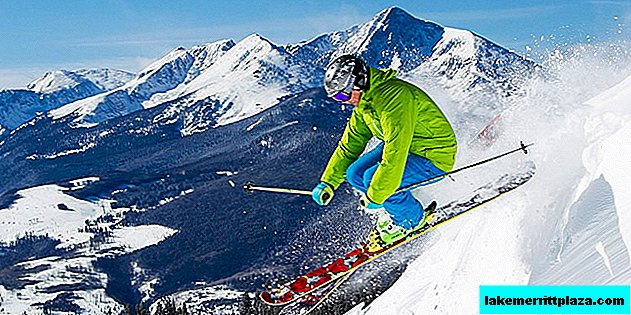Due to its geographical location and proximity to the centers of ancient civilizations, Sicily developed under the influence of a wide variety of cultures. Thanks to this, a visit to the island can give a wide variety of impressions. Starting out with Sicily, BlogoItaliano selected the 8 most noteworthy sights from our point of view to present the island to the reader. In subsequent posts, we will return to them again and again, in order to give a more complete picture of them, for now we will consider them very briefly.
A rich historical heritage, several active volcanoes, a wonderful climate and healthy cuisine - it is not surprising that many Italians spend their holidays in Sicily, giving it preference over other Mediterranean resorts.
Sicily - an island separated from the mainland by not only three seas - the Ionian, Tyrrhenian and Mediterranean, but also centuries-old history. Situated between Europe and Africa, Sicily has always been a tidbit for both conquerors and merchants. The centuries-old presence on the island of Greeks, Romans, Arabs, Vikings and representatives of other nationalities could not but leave a rich legacy in architecture, art, language, and, of course, the Sicilian cuisine.
Medieval Erice
Town Erice located on the west coast of Sicily at an altitude of 755 meters above sea level. This is a fairly fortified medieval city in which about 2 thousand people live today. The first inhabitants in Erice appeared in the period from XV to VIII century BC They worshiped the ancient gods and this faith was so strong that even today, despite the numerous Christian churches, the spirit of pagan culture is felt in the city.
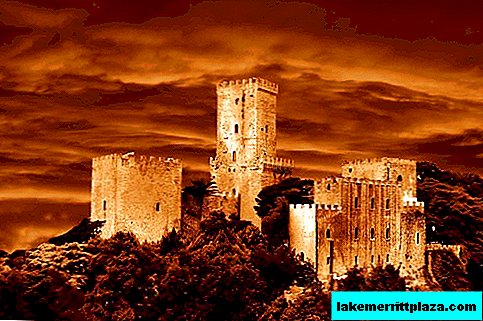
- Erice is famous for its medieval architecture
It is nice to stroll through the narrow cobbled streets, inspecting the old buildings, look into the small courtyards, which, it seems, still remember all of its inhabitants, starting from the Renaissance.
Greek Theater in Syracuse
Greeks appeared in Sicily in the VII century. BC. and for seventeen centuries they built their cities, developed a culture, built temples. The true monument of ancient culture is Greek Theater in Syracuse with a diameter of about 140 meters, designed for 15 thousand spectators.
On its stage, scenes from ancient plays are also being played out, as well as concerts by contemporary performers. The theater looks especially majestic at night, when the stage is flooded with torches and colored lights.

Antique Theater in Syracuse - the largest in Sicily
Volcano stromboli
Volcano stromboli located near the North coast of Sicily in the Tyrrhenian Sea and belongs to the group of the Aeolian Islands. He is not as famous as the world famous Etna, but, unlike the latter, has not ceased its eruption for more than 20 thousand years.Stromboli often referred to as the “Lighthouse of the Mediterranean," thanks to the white clouds above the volcano’s vent that are visible from great distances.
Despite volcanic activity, the island is 13 square meters. km in three villages, several hundred people constantly live, who in case of special activity of the volcano are evacuated by the authorities until the mountain giant is calm.
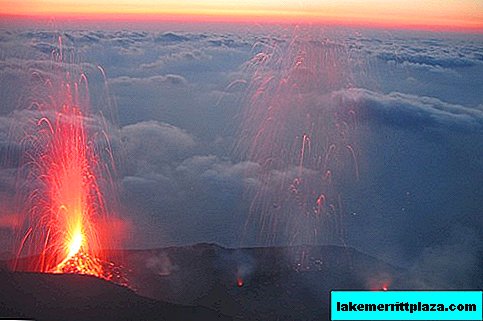
- Stromboli eruption at sunset especially impresses visitors
Excursions to volcano stromboli held all year round, but the presence of a guide is required. Climbing to the top occurs at pre-sunset hours, because in the dark, the form of magma boiling in the crater is especially impressive.
Valley of the Temples
The most significant archaeological site protected by UNESCO in Sicily is considered Valley of the Temples in Agrigentobuilt by immigrants from the island of Rhodes.
The valley is known for the ruins of ancient Greek temples of the VI-V centuries BC, the best examples of the Doric style that have come down to us from ancient times. The best preserved ruins of seven temples: Juno, Hercules, Zeus, Dioscuro, Vulcan, Aesculapius and the Temple of Concord.

Valley of the Temples is considered the most significant archaeological site in Sicily
In addition to earthquakes, which over the centuries have had a detrimental effect on buildings, the first Christians who intentionally spoiled them caused special damage to the ancient temples. Only a sad fate was avoided Temple of Concord. And that is only because in the VI century A.D. he was turned into a Christian church.
To be continued…






